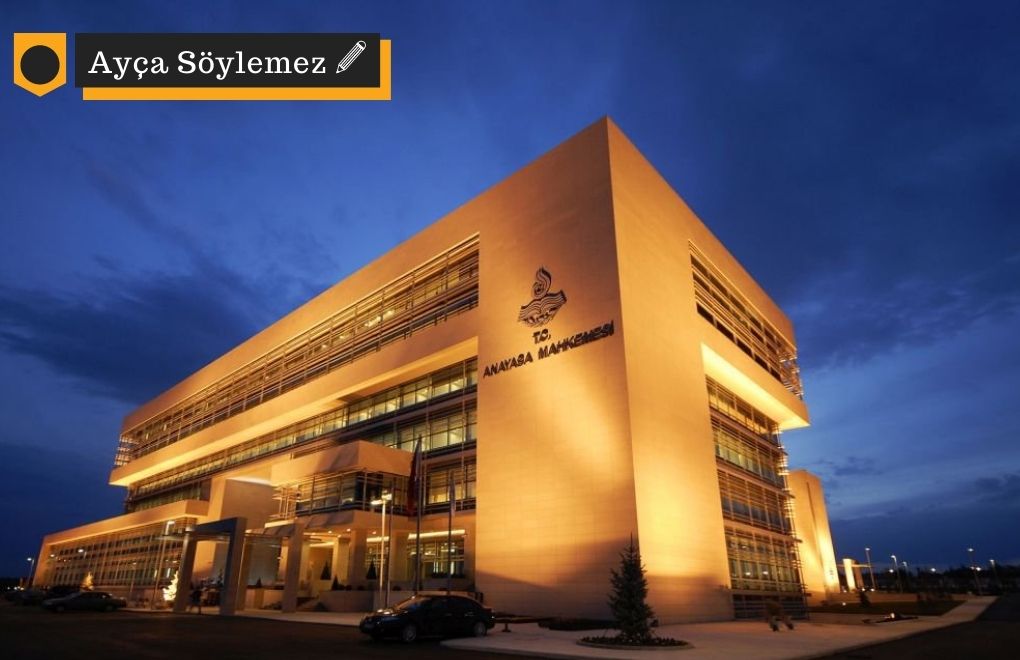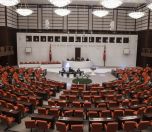Constitutional Court rejects appeal against Law on Criminal Enforcement

Click to read the article in Turkish
The Constitutional Court has rejected the request that the amendment introduced to the Law on Criminal Enforcement be annulled.
CLICK - Law on Criminal Enforcement Enters into Force
Amended a few months after the novel coronavirus (COVID-19) pandemic broke out in Turkey in early March 2020, the law paved the way for the release of thousands of ordinary prisoners as political prisoners were excluded from the scope of the law amendment.
While the appeal against the amendment has been rejected by the Constitutional Court, Court President Zühtü Arslan, Deputy President Hasan Tahsin Gökcan and members Engin Yıldırım, Hicabi Dursun, Celal Mümtaz Akıncı, M. Emin Kuz and Yusuf Şevki Hakyemez have expressed dissenting opinions to this decision of rejection.
The dissenting opinions have concurred that the law in question has the characteristics of a "special amnesty/pardon" and, that being the case, the Parliamentary majority is needed to implement it.
The main opposition Republican Peoples' Party (CHP) previously took the amended law to the Constitutional Court "on the grounds that some provisions of the law foreseeing supervised release and some reductions in release on probation have the characteristics of an amnesty as per the Article 92 of the Parliamentary bylaw, which requires a three-fifth majority in voting both the articles having these characteristics and the law as a whole."
'Three-fifth Parliamentary majority is necessary'
In his dissenting opinion to the rejection, Zühtü Arslan, the President of the Constitutional Court, has briefly stated the following:
"Considering that the provisional article no. 6 of the related Law has the characteristics of an amnesty and it was not passed by the three-fifth majority of the Parliament as stipulated in the Article 87 of the Constitution, it is in breach of the Constitution with regard to its form.
"As I am of the opinion that the Law as a whole and its provisional Article 6 have to be repealed as they are against the Constitution with regard to their form, I do not agree with the majority opinion of rejection."
'This is a pardon'
Deputy President Tahsin Gökcan has also objected to the rejection, briefly stating the following in his dissenting opinion:
"In order for a legal arrangement to be considered an amnesty, two elements must be sought. The first one is that it must be an arrangement that is retrospective and foresees a limited duration.
"The second one is that it ends in non-execution of the finalized sentence or leads to a reduction in the amount or quality of the sentence in question.
"The provisions in the provisional article no. 6 has both of these elements in terms of their consequences through the penal institutions.
"Contrary to the majority decision, I have voted in favor of repeal on the grounds of contrariety to the Constitution with regard to form as the examined rules have the characteristics of a pardon and the rule of qualified majority as indicated in the Article 87 of the Constitution was not abided by in the vote." (AS/SD)
bianet submits shadow report to UN Human Rights Committee

Imprisoned lawyer exposes use of disciplinary investigations to pressure political prisoners

Tap water ‘smells of bleach’ in Muğla prison

Censorship on a letter from prison describing hunger

Prisoner on hunger strike: 'I am alone without sunlight'










